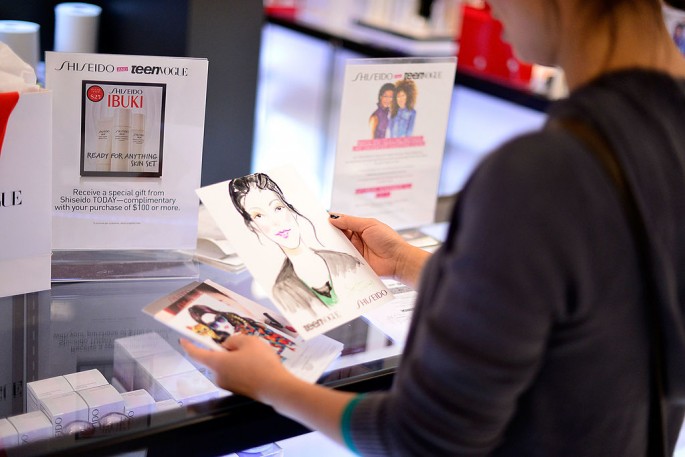Shiseido Co. Ltd., a leading Japanese personal care brand, reported strong demand for its products among Chinese customers in Japan despite its weak performance in the actual Chinese market, China Daily reported.
According to Shiseido, annual sales for 2015 rose to 763.1 billion yen ($6.7 billion), which represents a 12.6-percent increase. This growth, analysts say, is the byproduct of strong demand from Chinese tourists.
Operating income also rose to 37.7 billion yen or 77.4 percent, despite the fact that its operations in China only rose by 2 percent.
"We have seen a substantial market increase, both in sales and income, mainly due to our major brands in the domestic market," said Norio Tadakawa in an interview with China Daily. Tadakawa is Shiseido's corporate office and CFO.
Shiseido's operations in Shanghai and Beijing both struggled last year, with Shanghai sales having been flat for several years, said Tadakawa. The company, however, maintains its desire to reserve negative outputs, targeting a 10-percent growth in the Chinese market.
"We are seeing more of the middle-class market, so we will keep on expanding consumption and diversification," said Tadakawa, who also expects Shiseido's e-commerce arm to grow by 20 percent in China.
To help increase its market share, officials at Shiseido are also planning on establishing a new innovation center.
Most of Shiseido's competition, according to Tadakawa, comes from South Korean brands.
Sales of South Korean cosmetic brands have grown steadily over the years, according to Kantar Worldpanel China. Last year, these brands grew by 33 percent compared to Japanese brands' meager 11.6 percent.
Consumer awareness has also contributed to Shiseido's dilemma, as more Chinese consumers are aware of other international brands thanks to overseas travel, said Laurie Du, analyst at U.K.-based research firm Mintel Group Ltd.
Still, Japanese brands remain a hit among Chinese tourists visiting the Land of the Rising Sun.
According to Du, Japan represents 29 percent of skincare product sales by Chinese tourists, performing better than French and South Korean counterparts.
"Chinese consumers strongly believe in the competitiveness, quality, and price of Japanese products," said Du in an interview with China Daily.



























